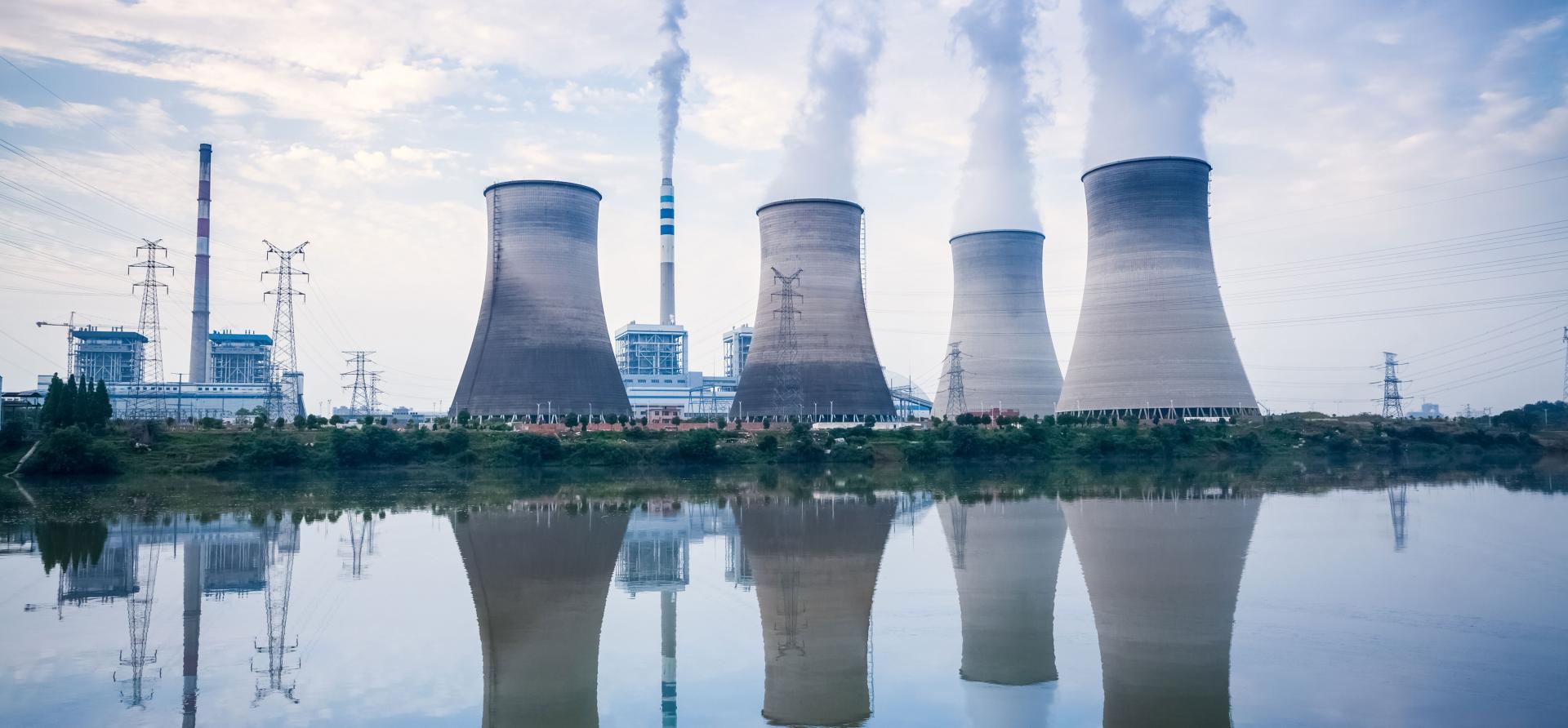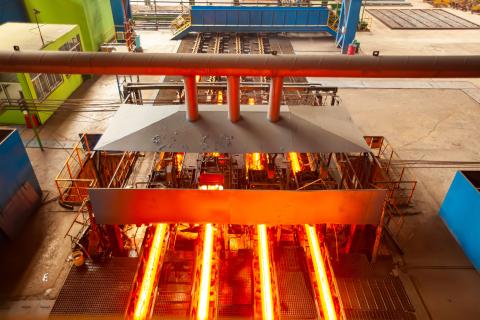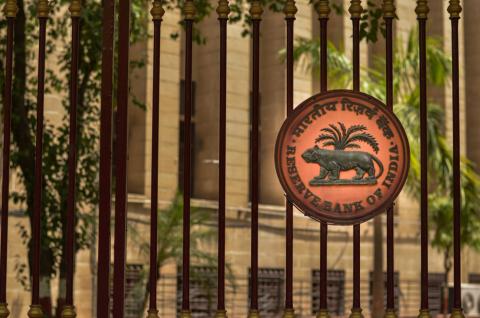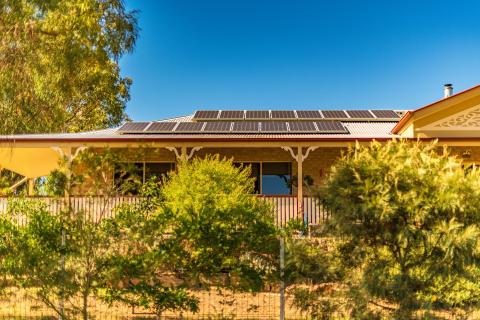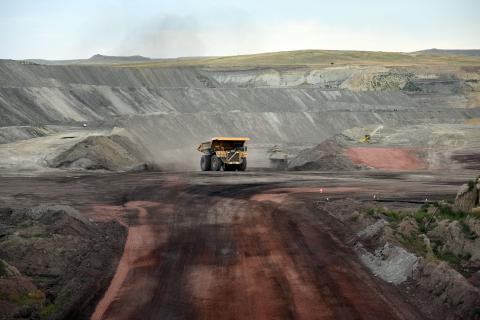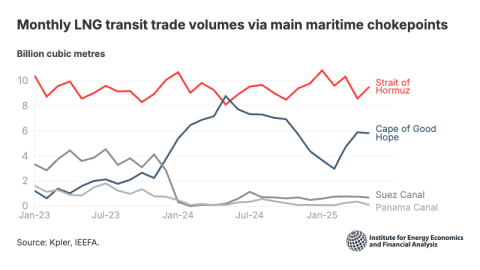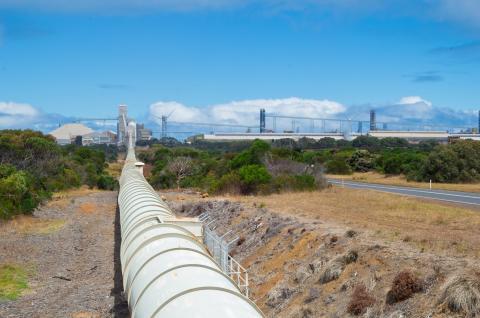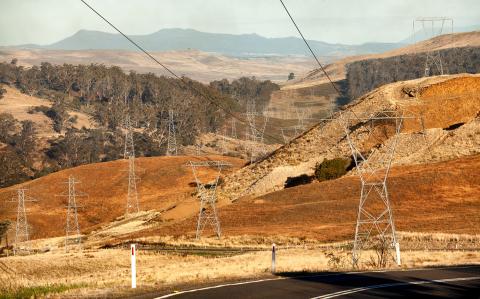SYDNEY — In the last two weeks, four globally significant financial institutions – one leading Chinese financier, two European insurers and one French asset manager – brought in new restrictions on thermal coal financing, insurance and/or investments.
Additionally, two important Australian regulatory authorities called on governments and financial markets to prepare for an urgent but orderly financial, energy and climate change transition.
Key developments
- State Development & Investment Corporation (SDIC) is the first major domestic Chinese financial institution to exit coal.
- Two major European insurers, UNIQA of Austria and MAPFRE of Spain, have excluded coal.
- BNP Paribas of France has excluded thermal coal in its funds management business.
- Australian financial regulatory authorities are calling for an early and orderly transition.
Three weeks ago, IEEFA released a major report highlighting over 100 globally significant financial institutions had restricted coal financing and/or insurance. In compiling the report, we found that since the start of 2018 there had been a new announcement on coal restrictions occurring on average every two weeks.
In fact, the announcements are coming in faster. To date in 2019 there have been nine announcements including UNIQA of Austria, MAPFRE of Spain, BNP Paribas of France, and SDIC of China in just the last two weeks.
We expect this trend to continue to accelerate. The global financial industry is continuing their capital flight from thermal coal.
Most notably, the first Chinese domestic financier has announced a total coal exit.
IEEFA views this announcement as globally significant. The State Development & Investment Corporation (SDIC) (国家开发投资公司) is the first leading Chinese financial institution to completely exit the coal industry as part of China’s national plan to develop low emissions energy industries of the future.
SDIC is the largest Chinese investment holding company with US$1,461bn assets under management (AuM). As a leading state-owned enterprise, SDIC has focused on reform and innovation, facilitating and guiding the development of new industries across China. Over the last decade, coal-related investments have been one of SDIC’s leading profit contributors.
Earlier this month Mr Wang Huisheng, Chairman of SDIC told Chinese reporters that SDIC had accelerated its 2016/17 five year plan to exit coal to align with national energy structure adjustment measures with a view to redeploying capital into growth areas of new energy, including renewable energy, energy storage and biofuels.
SDIC has now finalised its complete withdrawal from the coal industry and will no longer invest in thermal power plants.
The threat of climate change is ‘distinctly financial.’
Also in the last two weeks, a leading insurer in Latin America – the Spanish group MAPFRE (€68bn AuM) announced ‘the Group will not invest in coal-powered electricity utilities or insure new coal-related projects.’
This was followed by UNIQA Insurance Group AG (€20bn AuM) of Austria who last week announced their divestment from new coal-related investments with limited guarantees for the future insurance of their existing coal industry clients beyond 2025.
Additionally, last week BNP Paribas Asset Management (€537bn AuM and assets under advisory mandates) also announced a new coal exclusion policy stating it is ‘accelerating its commitment to climate change’. The banking arm of BNP Paribas first announced it was divesting from thermal coal in 2015, and this is the second subsequent policy tightening by BNP.
BNP’s policy shift is again reflective of a global transition away from thermal coal and intensive carbon emitting industries.
The four institutions exiting coal have looked at the evidence and found renewables are increasingly deflationary while coal will become increasingly uncompetitive, and counter-productive to the objectives of the Paris Agreement.
In Australia, the Australian Prudential Regulation Authority (APRA) recently asserted a new urgency. Commissioner Geoff Summerhayes noted the threat of climate change is ‘distinctly financial’ and that it is crucial for companies and countries to seize emerging opportunities or risk being left behind.
APRA’s Commissioner also noted that ‘the companies leading the shift towards the low carbon economy’ tended to be ‘most sophisticated businesses’ – a clear message to both governments and companies to increase their risk mitigation strategies and a program of transition away from carbon intensive industries.
Then last week the Deputy Governor of the Reserve Bank of Australia highlighted the key systemic financial risk to institutions and the economy by not driving transition to mitigate climate change. Guy Debelle suggested countries like Australia are economically vulnerable to global reductions in carbon intensive energy use, as well as exposed to the increased severity and frequency of extreme weather events.
With Japan – Australia’s biggest thermal coal export market – emerging as a new leader in exiting thermal coal mining and new coal-fired power plant development, coupled with the rapid cost decline and increased uptake of renewable energy sources, Australia needs to urgently review its forecasts in a market that is changing rapidly.
Over 100 global institutions and counting are exiting thermal coal finance and insurance. The momentum is increasing, and governments and corporations must get ahead of the transition challenge to reduce cost exposures coupled with climate change.
Absent action over the last decade, the best time to start the transition is now.
Tim Buckley is director of energy finance studies, IEEFA Australasia, [email protected]
Related articles:
IEEFA report: Every two weeks a bank, insurer or lender announces new coal restrictions
IEEFA report: Financial case builds for fossil fuel divestment
IEEFA update: Get out now — Norway’s fossil fuel epiphany

